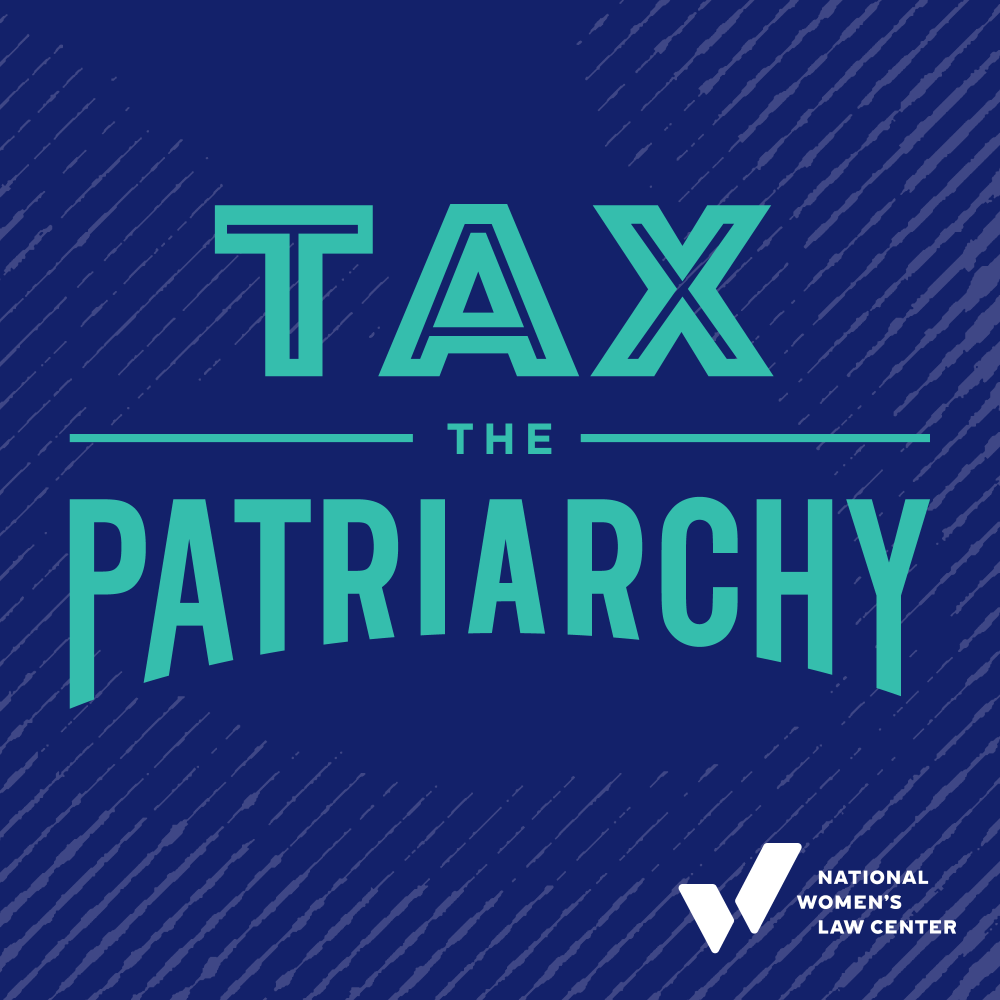Taxing the Patriarchy Will Help Us Invest in Women & Families

As more people are getting vaccinated, friends and family are seeing each other for the first time in months, and many businesses and schools are starting to reopen, it feels like we’re turning a corner. While many are looking forward to going “back to normal,” it’s clear that we’re still a long way from anything that resembles recovery.
Though the overall unemployment rate has dropped in recent months, more than 1 in 12 Black women (8.6%) and nearly 1 in 13 Latinas ages 20 and over (7.5%) were unemployed in April 2021. Among women ages 20 and over who were unemployed last month, more than 2 in 5 (44.2%) had been out of work for 6 months or longer. Nearly two million women have completely dropped out of the labor force since February 2020, meaning they are neither working nor looking for work. Millions of women and families have lost employment income, face food insufficiency, and are behind on their rent or mortgage payments since the onset of the pandemic. And the impacts of COVID will likely be long-lasting—research suggests women of color may experience a lag in finding new jobs after the recession.
COVID revealed and exacerbated deep, longstanding structural flaws in our economy. Unless we take dramatic action, the racial and gender wage gaps, overrepresentation in poorly paid jobs, and lack of caregiving supports that undermined women’s economic security before the pandemic will persist afterwards.
So how do we move forward? We need large-scale, public investments to put us on the path to shared and sustainable prosperity.
We must build care infrastructure that makes all other work possible—including child care, paid family and medical leave, and home- and community-based supports. These investments will ensure that families can care for their loved ones, and that the women who do this work are paid living wages. Care investments benefit everyone—families, employers, the economy as a whole, and especially women who bear the burden of unpaid caregiving and make up the overwhelming majority of care workers. And we know that investing in the care economy will create jobs, raise wages, and stimulate economic growth.
We also need to ensure the improvements to the Earned Income Tax Credit (EITC), Child and Dependent Care Tax Credit (CDCTC), and Child Tax Credit (CTC) from the American Rescue Plan are permanent. Refundable tax credits like the EITC and CTC especially benefit women of color. They boost incomes, improve health and educational outcomes for women and families, and lift millions of people out of poverty every year. The expansions to the CTC in the American Rescue Plan are estimated to cut child poverty nearly in half, and seven out of 10 children lifted out of poverty are Black and Latinx.
On Tax Day, let’s remember what we have taxes for—so we can all contribute towards the public good. Plus, we can raise revenues to support investments in our shared priorities to make the tax code more equitable by taxing corporations and the rich. For example, we should:
- Roll back the harmful 2017 Trump tax cuts to top income tax rates;
- Roll back the Trump tax cuts to the corporate tax rate, and eliminate tax breaks that encourage corporations to shift jobs and profits offshore;
- Eliminate the loophole that lets the wealthy pay a lower tax rate on their investment profits than workers pay on their wages;
- Eliminate the loopholes that let the wealthy avoid paying taxes on the profits from assets they inherit; and
- Strengthen IRS enforcement to ensure that the wealthy and corporations aren’t cheating the tax code.
If we make the right choices now, we can build an economy that works for all of us, so women can live with economic dignity and have the opportunity to create a brighter future for themselves and their families. Together, let’s Tax the Patriarchy.






